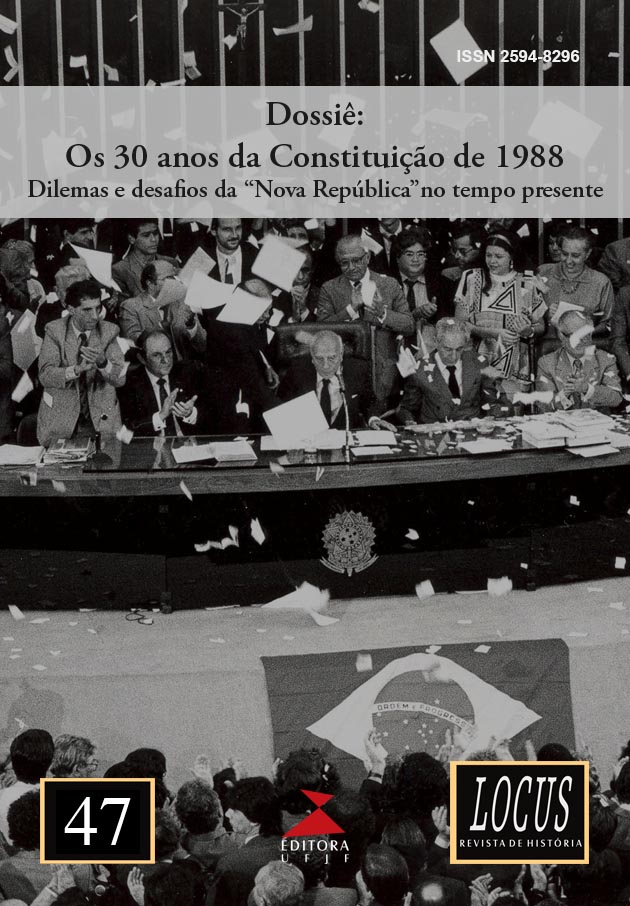Thirty years later, are the challenges the same? The debate on Public Security in the National Constituent Assembly
Published 2023-08-01 — Updated on 2023-08-01
Versions
- 2023-08-01 (2)
- 2023-08-01 (1)
Keywords
- National Constituent Assembly,
- Public security,
- Police
How to Cite
Copyright (c) 2018 Leandro Molhano Ribeiro, Patricia Burlamaqui

This work is licensed under a Creative Commons Attribution 4.0 International License.
Abstract
The objective of the article is to reconstruct the discussion of public security in the ANC, identifying the main actors who participated in the drafting of the constitutional text and the ideals they defended. For that, the documents produced in the deliberative sessions of the ANC in all its phases, including all documents referring to public hearings, were analyzed. It is argued that the guidelines approved in the area of public security at the ANC were marked by much continuity with those in force in previous historical periods, unlike the break with the authoritarian past that marked a large part of the works that gave rise to the new Constitution. Two factors seem to explain the high degree of continuity in the structure and guidelines of the area of public security: a) the control exercised by parliamentarians considered conservative in the exercise of the presidency and reporting in the Commission and the Subcommittee in charge of discussing public security and b) defense and the influence of the corporate interests of the military police and the Armed Forces that participated in public hearings held throughout the constituent process. The article shows that, despite that, there were, at that moment, innovative propositions - although not materialized - many of which are on the table of the current political debate, such as the idea of ending the military police or removing their link with the army. ; the need for democratic or social control of the police; the exclusive destination of the Armed Forces' performance in external security; the unification of the civilian and military police, which would mean the end of the dual model of ostensive / investigative police; public security as an area of service delivery to the community.

